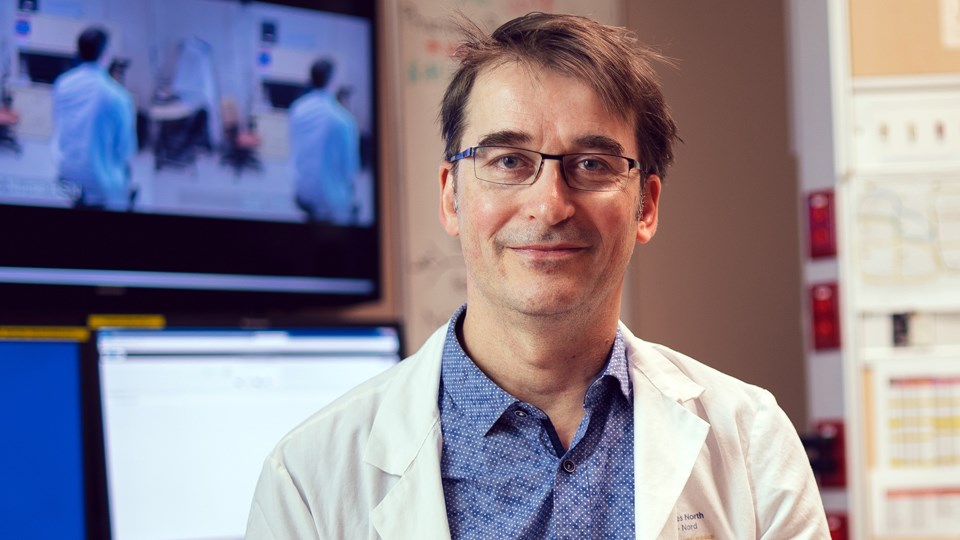The chief of critical care at Health Sciences North says he knows how frightening it can be for COVID-19 patients and their families to see gowned and masked hospital staff tending to them. To see a loved one ill and in distress, but to be unable to touch them or comfort them — or be in the same room as them — is particularly difficult, said Dr. Derek Manchuk.
“It’s really hard on patients and their families — our hearts go out to them,” he said. “It’s scary to see all these people in PPE and it’s very upsetting that they can’t see their family because of the restrictions.”
But as difficult as the past few weeks have been (and the upcoming weeks and months will be), the fact that Canada, and by extension Ontario and Northern Ontario appear to have escaped the worst of the pandemic means the sacrifices were worth it.
The situation could have been a lot worse.
“We planned for the worst and fortunately, we’re not seeing it,” Manchuk told Sudbury.com May 1.
That planning began months ago.
Critical care staff were prepared for COVID-19 in the sense they are used to dealing with infectious diseases, Manchuk said. So besides more extensive use of personal protective equipment (PPE), providing care to infectious patients isn’t something new.
Face shields (including ones made locally), goggles, special gowns, gloves, negative-pressure rooms (that prevent the virus from escaping) … these are par for the course, but there was a new addition to the regimen, Manchuk said.
HSN brought in specialized video equipment that helps staff insert breathing tubes from a bit more distance. Not across the room, mind you, “but not right down in the mouth either,” Manchuk said.
The hospital also provided iPads so isolated patients and loved ones could at least see one another and communicate.
He explained how HSN prepared for a potential surge in cases (an eventuality Canada mostly escaped, unlike Italy) by repurposing critical care beds usually reserved for heart patients for COVID-19 and training some staff to perform other duties where their skillset made sense to do so. For instance, recovery room nurses were trained so they could monitor patients on ventilators.
“There was a general lack of understanding about the virus (when planning began) and we still have lots to learn,” Manchuk said. “The potential for a surge was most concerning (in the planning process).”
And while it seems the potential surge won’t occur, Manchuk said Sudbury, and Canada, “isn’t out of the woods yet.”
Governments must be smart about how society re-opens. “We have to loosen restrictions in a smart way,” he said.
As the fight against the pandemic continues (and with hopeful signs that Ontario has crested the wave), Manchuk said he is proud of how HSN responded.
“We have an amazing dedicated team who rose to the challenge,” he said. “Everybody did a fantastic job.”
